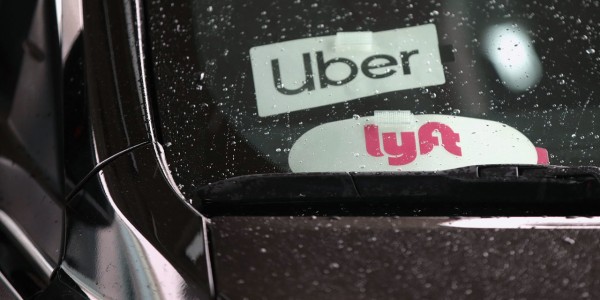By: Robert B. George, Esquire
With the current popularity of ridesharing services, most notably Uber and Lyft, many individuals are or may be thinking about driving for one or both of these companies, in order to generate some additional income.
Before you actually begin to drive for one of these companies, or if you are already driving for either of them, it is very important that you understand how automobile insurance works when you operate as a driver for hire. For example, whose insurance will cover a car accident that may occur when you are driving for Uber or Lyft? Does your insurance carrier provide coverage, or does the insurance carrier for Uber/Lyft, or both? What coverages will you have available to you?
As indicated above, Uber and Lyft are what are known as rideshare services that compete with more traditional transportation services, most notably of which are taxis. However, Uber and Lyft don’t own or operate cars, and do not treat the drivers that work for them as employees. Rather, Uber and Lyft consider such drivers as independent contractors. This classification is legally significant as it enables these companies to limit or avoid responsibility for accidents or damage that happen when drivers are working for them. Independent contractors are normally responsible for the results of their own negligence, whereas an employer usually covers the consequences of an employee’s carelessness.
From an insurance standpoint, the problem confronting these rideshare services, and more importantly the individual drivers, is that most of the individuals that are driving for Uber and/or Lyft do not have commercial policies. Rather, they have standard personal policies, which generally exclude coverage when the insured vehicle is being used for commercial purposes, which is the case when an individual is driving for hire for Uber and/or Lyft. This exclusion is relevant as the risk of a claim is much lower when a vehicle is being used for personal use, as opposed to being used as a driver for hire, which results in an increased amount of time that an individual spends on the road in their own vehicle.
In order to be properly protected, an individual who chooses to drive for a rideshare service should have a commercial automobile insurance policy. However, the premiums for such policies are generally much higher than those for personal policies, as a result of which very few drivers actually have commercial coverage and are, therefore, not protected from personal financial liability in the event of an accident which results in damage, injury and/or death.
As an example, suppose that an Uber or Lyft driver causes an accident and injures someone, and that there is also damage to the driver’s vehicle. The injured party will likely make a claim against the driver’s personal insurance policy to be compensated for his/her injuries and related expenses, such as medical bills. The driver would generally submit a claim to his/her personal insurance to cover the damages to his/her car under their collision coverage. However, the claims adjuster for the driver’s personal insurance policy will deny coverage for both claims once it is discovered that the car was being used to transport a passenger for profit. To make matters worse, the driver’s policy may be cancelled due to the driver’s violation of the terms of the insurance policy which prohibit the use of the vehicle for commercial purposes.
The above result is obviously detrimental to all involved, as the individual injured by the driver may resort to suing the driver personally, who will very likely not have the ability to pay compensation, and the driver will be on the hook for the repairs or replacement of his/her car.
Recognizing the problems involved with these rideshare services from an insurance coverage standpoint, many automobile insurance companies, as well as the rideshare services themselves, have implemented various measures to provide supplemental insurance coverage for individuals that choose to drive for them. The nature of these measures, however, is much more involved and complicated than this article will allow, but most certainly warrant further review and understanding if you are an individual considering driving for a rideshare service, or involved in an accident involving someone driving for a ride-share service.
The Law Firm of DiOrio & Sereni, LLP is a full-service law firm in Media, Delaware County, Pennsylvania. We strive to help people, businesses and institutions throughout Southeastern Pennsylvania solve legal problems – and even prevent legal problems before they occur. To learn more about the full range of our specific practice areas, please visit www.dioriosereni.com or contact Robert B. George, Esquire at 610-565-5700 or at [email protected].
Like what you see? Join our mailing list













